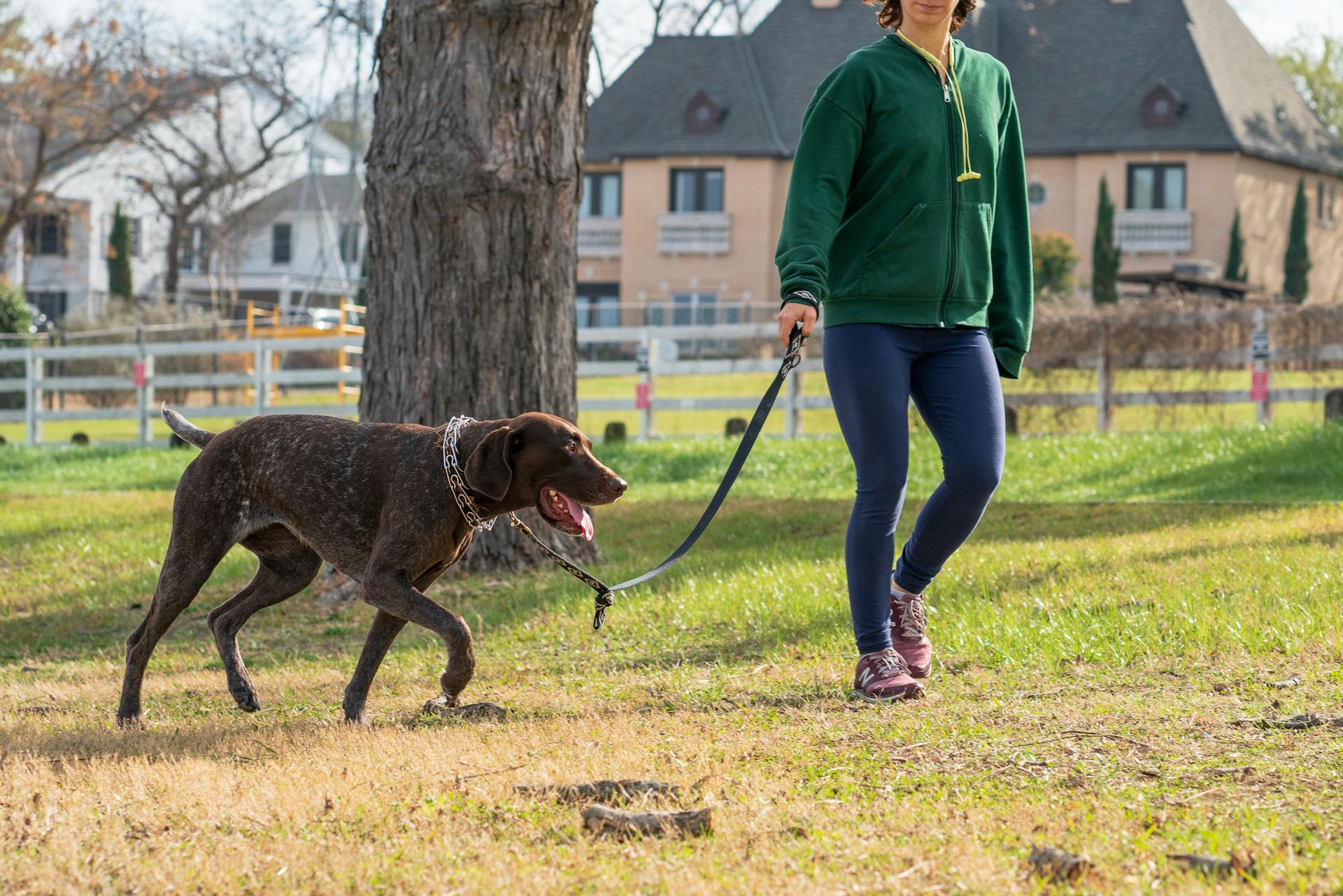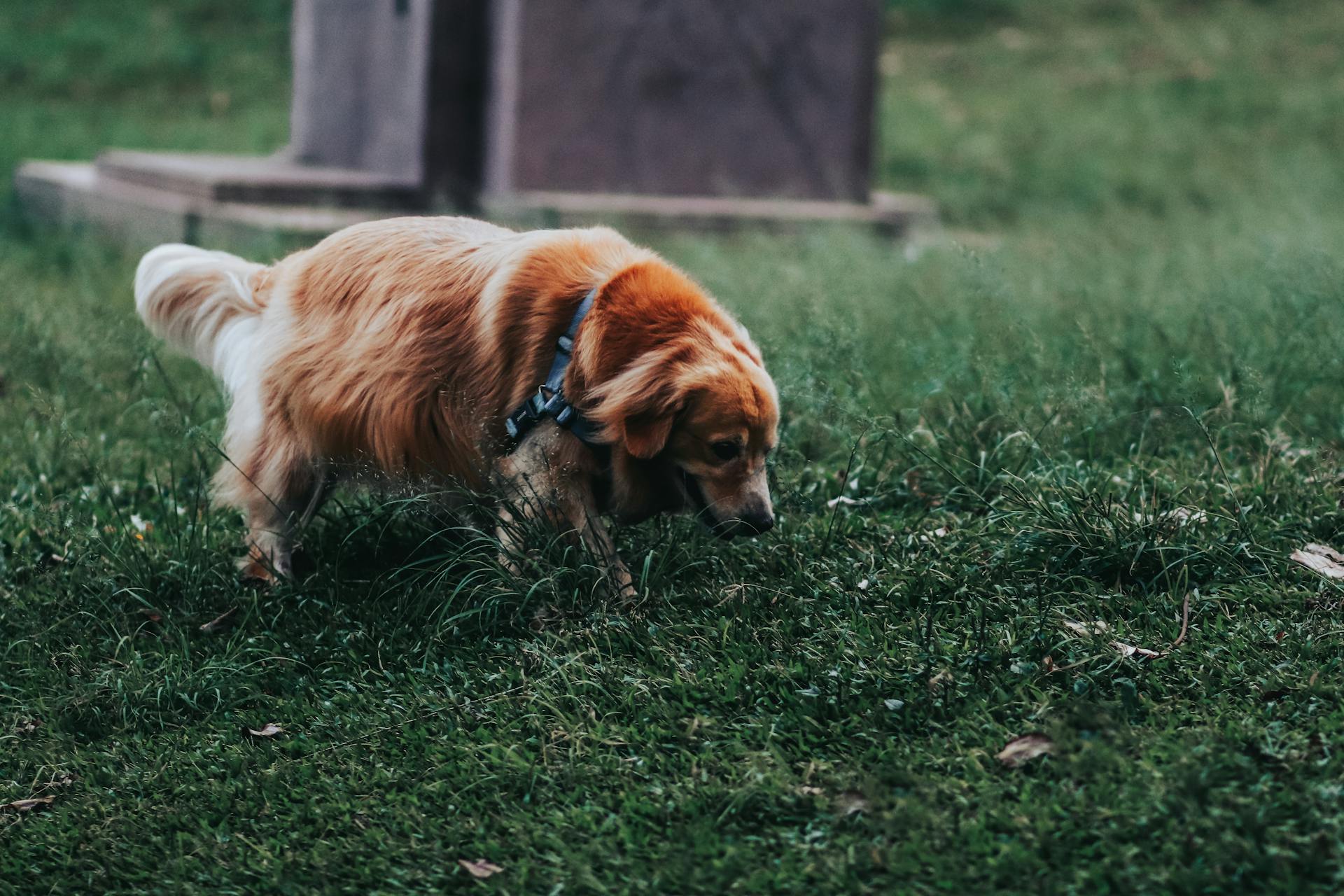
German Shorthaired Pointers are intelligent and energetic dogs, but they can also be prone to certain behavior problems if not properly trained and socialized.
Housebreaking can be a challenge for some GSP owners, as these dogs have a strong instinct to roam and follow their noses.
To address this, it's essential to establish a consistent routine and reward good behavior, such as taking your GSP outside to the same spot each time.
GSPs are also known to be strong-willed and independent, which can make training a bit more difficult.
However, with positive reinforcement and plenty of exercise, you can develop a strong bond with your GSP and help them become a well-behaved companion.
Understanding GSP Behavior
GSPs are naturally energetic dogs that require a lot of exercise to stay happy and healthy. They need daily sessions of heart-pumping exercise, the more the better, to prevent boredom and destructive behavior.
Their high energy levels can sometimes be misdirected, leading to digging, barking, and chasing small wildlife and pets. If left to their own devices, a bored GSP can become a handful.
Broaden your view: How Much Exercise Do Labrador Retrievers Need
GSPs are intelligent and respond well to reward-based training, but they can be easily distracted if not exercised enough. They require consistent training and regular exercise to prevent behavioral problems.
GSPs have a strong hunting instinct that needs to be managed, especially if you don't plan to use them for hunting. If left unchecked, they may bring you "trophies" like dead animals.
Their short coat sheds constantly, but regular brushing can minimize this. A fast weekly brushing is all they need to stay looking their best.
Here are some key things to keep in mind when understanding GSP behavior:
- They need a lot of exercise to stay happy and healthy.
- They can be easily distracted if not exercised enough.
- They require consistent training and regular exercise.
- They have a strong hunting instinct that needs to be managed.
- They shed constantly, but regular brushing can minimize this.
Training and Management
Training a German Shorthaired Pointer requires patience and consistency. They can learn quickly, but their independent nature can make training challenging.
Basic commands like "sit", "stay", "come", and "heel" are essential for proper behavior. Mastering these commands provides a foundation for more advanced skills.
To manage their hunting instinct, you must exercise control over their natural behavior. If you don't intend to use your GSP for hunting, you'll need to redirect their energy.
Exercise is crucial for GSPs, with daily activities like swimming, running, and playing fetch helping to burn off excess energy.
A well-exercised GSP is less likely to engage in destructive behavior like digging holes in the backyard.
To control excessive barking, teach your GSP the "speak" and "quiet" commands. This will help you manage their barking and reduce stress.
Here are some key training tips:
- Use positive reinforcement like verbal praise and treats to encourage good behavior.
- Keep training sessions short, ideally no longer than 15 minutes, to prevent boredom.
- Be consistent and repetitive in your training to ensure your GSP masters new skills.
Behavioral Management
Behavioral Management is crucial when it comes to training a German Shorthaired Pointer (GSP). To ensure your GSP behaves properly, you'll need to master basic commands.
Basic commands are a must, including sit, stay, come, and heel. These commands will give your GSP a foundation for learning more advanced skills. You can start by training your GSP to follow basic commands.
Managing your GSP's hunting instinct is also essential. If you don't intend to use your GSP to hunt wildlife, you'll need to manage this instinct to prevent unwanted "trophies" in your yard.
Exercise is vital for GSPs, who need a lot of physical activity each day. Without enough exercise, your GSP may resort to destructive behaviors like digging holes in the backyard. You can try exercises like swimming, running, or playing fetch with a Frisbee.
To control your GSP's barking, start by training your GSP to bark on command with the "speak" command, and then teach your GSP the "quiet" command. This will help your GSP understand when to bark and when to stay quiet.
Here's a simple plan to help you manage your GSP's behavior:
Exercise
Exercise is a must for German Shorthaired Pointers, with at least 1-2 hours of daily activity required to keep them fit and happy.
Strolling around the neighborhood just won't cut it - they need long walks, jogs, hikes, or running off-leash in a safe area.
German Shorthaired Pointers are true athletes who enjoy activities like agility, field trials, dock diving, and tracking competitions.
If they don't have a healthy outlet for their energy, they'll get bored and frustrated, leading to destructive behaviors.
Owning a Dog
Before bringing a German Shorthaired Pointer into your household, make sure everyone is prepared for the new pet.
German Shorthaired Pointers usually get along with other dogs, but early socialization is key to prevent aggression or confrontational behavior.
You'll want to keep your GSP separate from small exotic pets, especially birds, due to their hunting ancestry.
Positive reinforcement is a must when training your GSP, using verbal praise, treats, and extra petting to encourage good behavior.
Keep training sessions short, no longer than 15 minutes, to prevent boredom and maintain focus.
Consistency and repetition are crucial when teaching new tricks or commands, as GSPs can get distracted easily.
If you see your GSP using its creativity to find new ways of doing a task, don't reward it until it follows the command properly.
To use your GSP for hunting, consider enrolling it in a local hunting training course.
Frequently Asked Questions
What age do German Shorthaired Pointers calm down?
German Shorthaired Pointers typically calm down around 7 months old, marking a significant milestone in their development. At this age, they'll start to mature and become less rambunctious.
Featured Images: pexels.com


